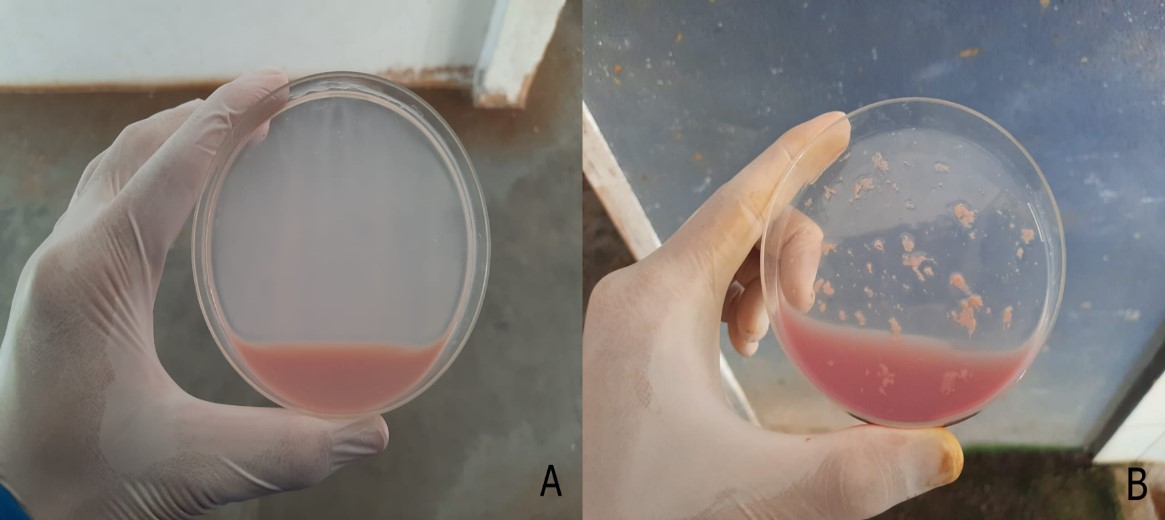Occurrence of unstable non-acid milk in dairy farms in northern Tocantins state, Brazil
DOI:
https://doi.org/10.21708/avb.2022.16.2.10575Abstract
The diagnosis of unstable non-acid milk (UNAM) in Brazil is overlooked due to the lack of information about this problem available to dairy farmers, mainly in the North region of the country. This report describes the occurrence of UNAM in three dairy farms of family farmers in northern Tocantins state, Brazil, who use animal feed based on Urochloa brizantha without mineral supplementation. The animals had been subjected to a poor feeding practice, with low quantity and quality, due to the dry period in the region and inappropriate nutritional management. Fourteen animals that presented alterations in milk characteristics were subjected to 72% alizarol test, California mastitis test, strip cup test, somatic cell count (SCC), boil test, physical-chemical and microbiological analyses, and search for undesirable substances. The time of lactation, udder health, and serum glucose level of animals, and soil and forage quality were also evaluated. The results showed 42% animals diagnosed with mastitis, 21% of them with clinical and 21% with subclinical mastitis; and 78% of animals with samples positive for the alizarol and boil tests, and Dornic acidity between 14° and 18°, characterizing positive cases for UNAM. Only one animal presented SCC above the limit established by the Brazilian legislation. The animals presented undamaged teats and no alteration in glycemia. Changes in nutritional management were recommended and done and the alizarol tests were redone after 14 days, showing all negative results for UNAM. The conclusion is that incorrect nutritional management is the main cause of UNAN in the studied cases.
Downloads

Downloads
Pubblicato
Fascicolo
Sezione
Licenza
Copyright (c) 2022 Acta Veterinaria Brasilica

TQuesto lavoro è fornito con la licenza Creative Commons Attribuzione 4.0 Internazionale.
Autores que publicam na Acta Veterinaria Brasilica concordam com os seguintes termos: a) Autores mantém os direitos autorais e concedem à revista o direito de primeira publicação, com o trabalho simultaneamente licenciado sob a Licença Creative Commons Attribution que permite o compartilhamento do trabalho com reconhecimento da autoria e publicação inicial nesta revista. b) Autores têm autorização para assumir contratos adicionais separadamente, para distribuição não-exclusiva da versão do trabalho publicada nesta revista (ex.: publicar em repositório institucional ou como capítulo de livro), com reconhecimento de autoria e publicação inicial nesta revista. c) Autores têm permissão e são estimulados a publicar e distribuir seu trabalho online (ex.: em repositórios institucionais ou na sua página pessoal) a qualquer ponto antes ou durante o processo editorial, já que isso pode gerar alterações produtivas, bem como aumentar o impacto e a citação do trabalho publicado (Veja O Efeito do Acesso Livre).


 Esta obra está licenciada com uma Licença
Esta obra está licenciada com uma Licença 